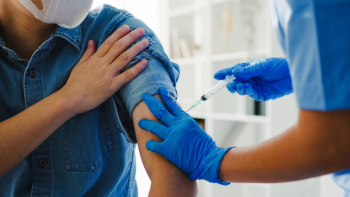
World Health Assembly Underlines Pharma's Global Challenges
Susan Crowley reviews the hotly debated agenda items from last month's World Health Assembly (WHA) in Geneva, Switzerland.
The annual World Health Assembly (WHA) took place May 18-26 in Geneva, attended by some 5,000 persons, including most of the world’s health ministers. A full 70-item agenda was debated.
German Chancellor, former research scientist Angela Merkel, delivered the keynote address and credited the key role of industry, notably in the context of the Antimicrobial Resistance (AMR) issue that the chancellor had committed to raise at the G-7. She stated, “The pharmaceutical industry is an important partner in the fight against disease, but it can only provide new products through research and development. I have been told how difficult it is to develop new varieties of antibiotics to replace the old ones. We must therefore tread carefully if we are to make progress” and concluded, “Let us work together in a spirit of cooperation, and not seek to undermine each other’s deeds. The task is so immense and the endeavor so important that every helping hand is needed.”
Even though the world community believes WHO failed in its Ebola response and many argue the agency should focus on its capacity to address outbreaks, the agency continues to divert considerable financial and human resources to programs that challenge intellectual property and medical technology pricing. A
Because the ability of the private sector to have a voice in WHO consultations is at stake, the overarching issue for industry at this year’s Assembly was the Framework of Engagement with Non-State Actors (FENSA). Negotiations have taken place over two years, but the FENSA was still debated via 12 drafting group sessions. On the final afternoon of the WHA, as the matter remained unresolved, it was agreed that an open-ended intergovernmental drafting group will meet to finalize a document to be sent to the 2016 WHA via the January 2016 WHO Executive Board.
Another matter, the Global Vaccine Action Plan (GVAP), not expected to be contentious, ended up as perhaps the most important decision for the R&D industry. This will likely stand as a problematic precedent for all technology products as it sanctions the disruption of remaining market mechanisms and facilitates the implementation of emerging and developing countries’ industrial policies.
Introduced after the deadline for new resolutions by ten members of the Eastern Mediterranean Regional Office, and understood to have been drafted by Médecins Sans Frontières (MSF), the measure received minimal pushback from the Member States customarily friendly to industry. The few half-hearted attempts to scuttle on procedural grounds were inadequate. The adopted resolution asks WHO “to continue developing and adequately managing publicly-available vaccine price databases… working with Member States to increase availability of price information”; “to monitor vaccine prices through annual reporting”; “to provide technical support and facilitate financial resources for establishing pooled procurement mechanisms where appropriate for use by Member States”; “to strengthen the WHO prequalification program”; “provide technical assistance to support developing countries in capacity-building for research and development, technology transfer and other upstream-to-downstream vaccine development and manufacturing strategies that foster proper competition for a healthy vaccine market”; and “to report upon technical, procedural and legal barriers at may undermine robust competition that can enable price reductions for new vaccines…”
Adding to the challenges facing pharma is the May 8 publication of the new edition of WHO’s Model List of Essential Medicines (EML) which lists five innovative treatments for hepatitis C, 16 for cancer and several for TB. It also indicated at least two medicines for off-label use. The EML is used by governments worldwide as a guide to enact national policies on which medicines should be “essential” (and thereby targeted for national IP actions) and by UN organizations and philanthropic groups as a standard to guide drug donations.
Susan Crowley is President, Multilateral Consulting, LLC. She can be contacted at
Newsletter
Lead with insight with the Pharmaceutical Executive newsletter, featuring strategic analysis, leadership trends, and market intelligence for biopharma decision-makers.




